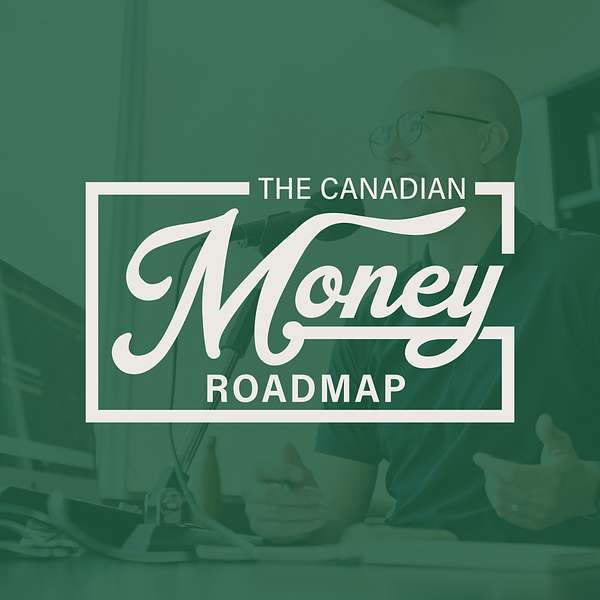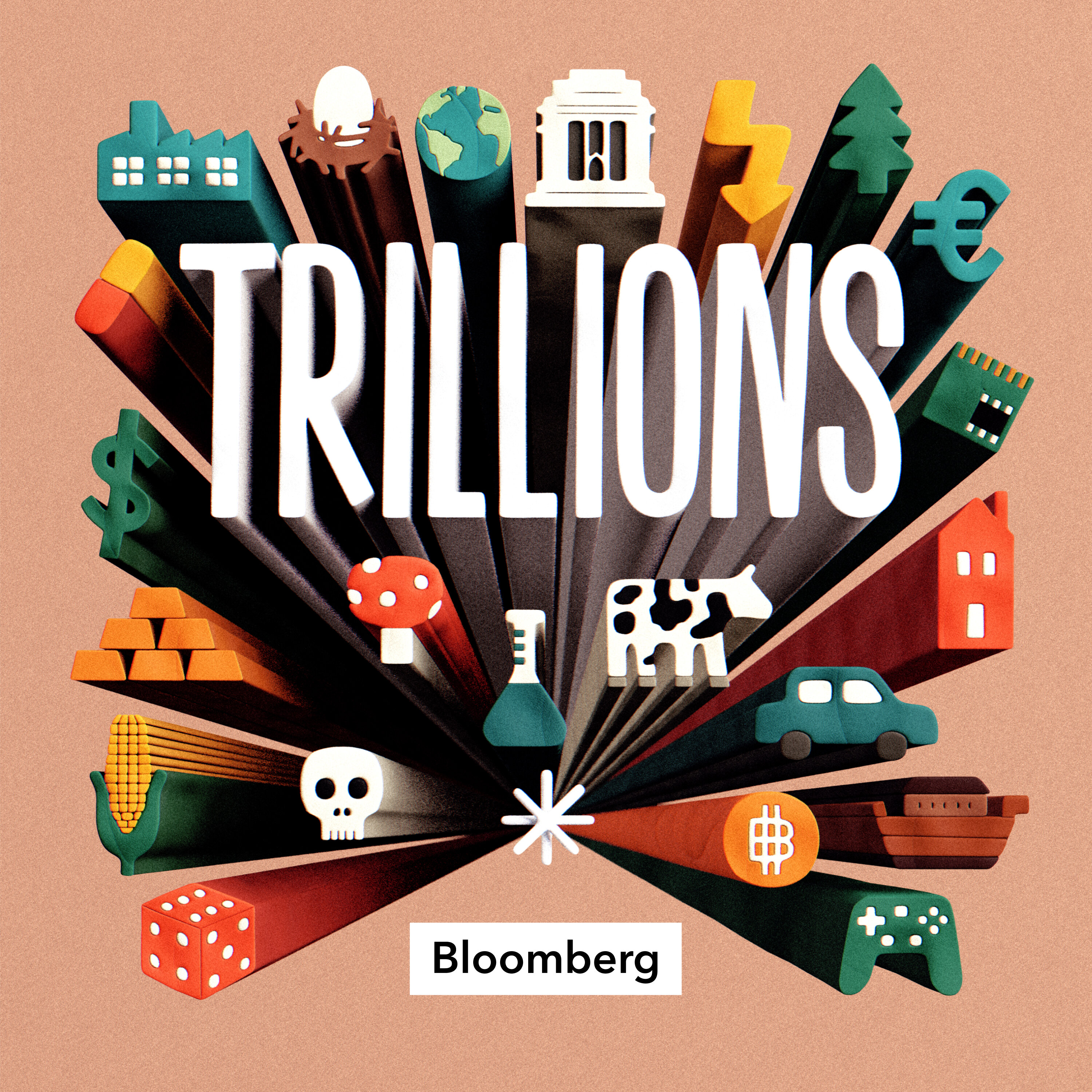
The Canadian Money Roadmap
Invest smarter, master your money, live & give more
The Canadian Money Roadmap
Do you need an emergency fund in retirement?
EPISODE SUMMARY
When you're living off your savings instead of relying on employment income, the idea of an emergency fund changes a bit. Here's a quick episode with what Evan recommends!
Continue to follow along through this series by downloading your copy of the retirement readiness checklist below.
✅ DOWNLOAD FREE RETIREMENT READINESS CHECKLIST
TOPICS IN THIS EPISODE
- Is an emergency fund still relevant, or required, in retirement
- How an emergency fund fits into the context of an investment portfolio
- Concept of a war chest
- Alternative sources for emergency funding
OTHER EPISODES
1. Should you Have an Emergency Fund?
22. Optimize your Investments by Plan Type
33. Are your Investments Appropriate for your Retirement Timeline?
If you enjoy listening to the podcast, please leave a 5 star review on Apple Podcasts
🌳 Connect with Evan and Cedar Point Wealth | Services and Pricing
🗣️ I want to hear from you! Record your comment or question here and you could be featured on an upcoming episode of the podcast
✨ Get your money organized - Your Full Financial Picture Spreadsheet
Hello and welcome back to the Canadian Money Roadmap podcast. I'm your host, Evan Neufeld. Today we are continuing with my Retirement Readiness Checklist series and we are looking at having an emergency fund in retirement.
Yes, this is a continuation on our retirement readiness series. We're following along with the checklist that I developed, that you can find on my website that's over at www.evanneufeld.com and you should be able to find it right on the homepage there. Click there, download it and follow along with us if you'd like and I'll hopefully be able to clarify as many things as possible through this podcast series. So you will know how to answer those questions.
So we're down into the second section now and the question there is about having an emergency fund. Now, this might sound a little bit goofy because emergency funds are typically something we talk about with new investors or people that are just starting in the workforce, getting out of school and things like that. It's one of those building blocks of your financial system that you want to have in place to make sure that if you're ever without a job, or if something happens, you can have enough cash on hand to make sure that you don't have an emergency, compound a problem and become bigger over time. Now even though you're retired, emergencies still happen, they just might look a little bit different because if you think about an emergency while you're in your working years, a lot of them would revolve around you not being able to earn an income. Now that you're retired, by definition, you don't have employment income so that type of emergency kind of disappears. But things like an unexpected household expense, like a new water heater, a new roof, new vehicle, and all those types of things can still happen along with things like your health or even family emergencies. Whatever the case may be, emergencies still happen.
The problem with emergencies happening while you're in retirement is that your retirement years are being funded typically by your savings, combination of pensions and things like that as well, but more often than not you're relying on your savings to fund your life. And when you have savings, generally speaking, those are going to be invested. So the problem with that is that if you have an emergency, like an unexpected expense, but all of your money is invested in the stock and bond markets. If the markets are in a downturn and you have an emergency, well, now you have a huge problem because now you're forced to sell things at a loss or just in a bad position where you wouldn't necessarily want to be selling. You'd want to hang onto it so that it has more time to increase in value. But an emergency is an emergency and if you need the money and the market's down, what are you going to do?
So just like someone that's starting in building their financial foundations, I still recommend that you have some cash set aside just in case. I don't recommend that everybody invest every single penny that you have. There is some value to having cash. Yes, there is some risk of having too much cash, because now that we're in this high inflation environment, not sure how long that's actually going to persist necessarily, but as the cost of living continues to go up, the cost of goods, the cost of groceries, the cost of getting around with gas and vehicles and the whole bit just sitting on cash, deteriorates the value of that cash. So I don't necessarily recommend that people hold on to too much cash, but some is okay. So the two strategies that I can typically recommend to people in their retirement years are:
The first one is to have an investment portfolio that includes some low risk or no risk investments, which could include cash, but things like bonds, maybe GICs. But cash and bonds are typically where we would want to go for the low risk part of your portfolio.
Just in that sentence there, there's a lot of jargon that you may not be familiar with, but if you think of the concept of having a war chest, where if something was happening and you needed access to money really quick, this is the place where you're going. So including cash and bonds, low-risk investments as part of your overall portfolio at all times, that kind of helps ease the burden of a potential emergency in your retirement years.
I'm going to come back to that in a later episode, because I recommend that people have a war chest at all times and that be part of where you withdraw your money from throughout your retirement years. Not necessarily just in an emergency, but it kind of does double duty. Because it's still accomplishing the same thing by not being volatile when the market is volatile and it is there for you when you need it, it might make a little bit of money, but the goal of that part of your portfolio isn't to make money it's for it to be stable and ready to access whenever you need it.
The second thing that I can recommend that most retirees have in place, not necessarily to use (you have to be careful with my language here) but if you have access to a home equity line of credit, sometimes it's called a HELOC. That will allow you to access some money for a very low interest cost.
Now, what is a home equity line? A home equity, so that's the part of your home that you actually own. So if you still have a mortgage, typically you would own part of it and the bank would own the other part. And that's the part of your mortgage. But if you're in retirement and you've already paid off your debt, you own the whole house.
So say your house is worth $500,000, your equity in the house is $500,000. Now if you go to the bank, they would be able to assess the value of your home and give you a certain percentage of that value as a line of credit. And a line of credit is just something that you can access. So they'll attach it to your typical banking and say, you have a hundred thousand dollars of a line of credit available.
What that means is you can actually use a hundred thousand dollars at your discretion whenever you like, but then it starts to accrue interest. So that's the fee for using the line of credit. In most cases, the amount that you have to pay back every month is just the interest. Now I don't recommend that people hold a balance there and accrue all this interest over time, but the monthly cost is quite low. So if we're thinking of a situation where you're in an emergency and you need access to quick cash. Well yes, you will have to pay some interest on accessing it with a home equity line of credit, but the cost will be quite minimal. And in many cases you won't have to start paying the principle back at least for a number of months. Now how is a home equity line of credit different than a regular, what we call an unsecured line of credit? Well, home equity line of credit is tied to your home and so because the bank knows that there's value in your home, then they're able to offer you a really low interest rate because it is secured. So if you don't pay it back, they take your house. So there's a risk there, but if you were to pass away or something like that, there would be an amount outstanding that you would owe to the bank the value of the outstanding line of credit. Now an unsecured line of credit means that it's not tied to the value of your home. So you could have, let's use the same example, a hundred thousand dollar unsecured line of credit. Now what happens if you don't pay that back?
Well, that's a big risk for them, so generally speaking, the interest rate is going to be a lot higher on an unsecured line of credit. So on the surface, you might not want more debt tied to your house or anything like that, but it's much cheaper to do it that way because the bank's risk is a lot lower.
So I don't mean to turn this into a home equity line of credit podcast, but that is a cheap way to be able to access money in an emergency.
So the main things that you want to look for a retirement emergency fund, you want to make sure that your money is easy to access without a penalty. So that's why I don't really like GICs as much because the money can be locked in for a certain period of time and you might have to pay a penalty to access it. We don't want to do that. And so we want it to be liquid and liquids is kind of a goofy word, but it liquid just means that it is cash or cash like and you can turn it into whatever you need to spend it very quickly. So you want your emergency fund to be liquid and you want the tax implications to be limited as well, because if you're in an emergency, let's see worst case scenario here. Say you need a new water heater. I see the market is down. Say, this is during COVID and it's down 35%. And then the money that you have is just in RRSP. Well, then you have to pay tax on the money to take it out in a downmarket for an emergency that doesn't add any value to your house. It just gets you back to where you were hoping to be with regular working water heater. Okay. So if you have money in a non-registered account or even a TFSA. I like to use TFSAs for growth, of course, but in a situation like this, the TFSA might be a decent place to go if you are looking at your situation and you might have a lot of tax to pay depending on the size of emergency.
So as a retired person, do you need an emergency fund in the traditional way that someone just starting out needs in a traditional emergency fund? Not necessarily, but I recommend that people are prepared for it financially. So by having a war chest of low risk investments, even including cash potentially, as part of your portfolio, that will give you a nice place to access some of your existing savings if you need it. And then if you need something above and beyond that or something quicker, than using a home equity line of credit might be a really good option for you, especially if you've already paid off your house and you're in your retirement years without any debt.
Thanks for listening to this episode of the Canadian Money Roadmap podcast. Any rates of return or investments discussed are historical or hypothetical and are intended to be used for educational purposes only. You should always consult with your financial, legal, and tax advisors before making changes to your financial plan. Evan Neufeld is a Certified Financial Planner and registered investment fund advisor. Mutual funds and ETFs are provided by Sterling Mutuals Inc.
Podcasts we love
Check out these other fine podcasts recommended by us, not an algorithm.

The Rational Reminder Podcast
Benjamin Felix, Cameron Passmore, and Dan Bortolotti
Animal Spirits Podcast
The Compound
The Intelligence from The Economist
The Economist
The Compound and Friends
The Compound
Trillions
Bloomberg
The Journal.
The Wall Street Journal & Spotify Studios
Standard Deviations with Dr. Daniel Crosby
Dr. Daniel Crosby
